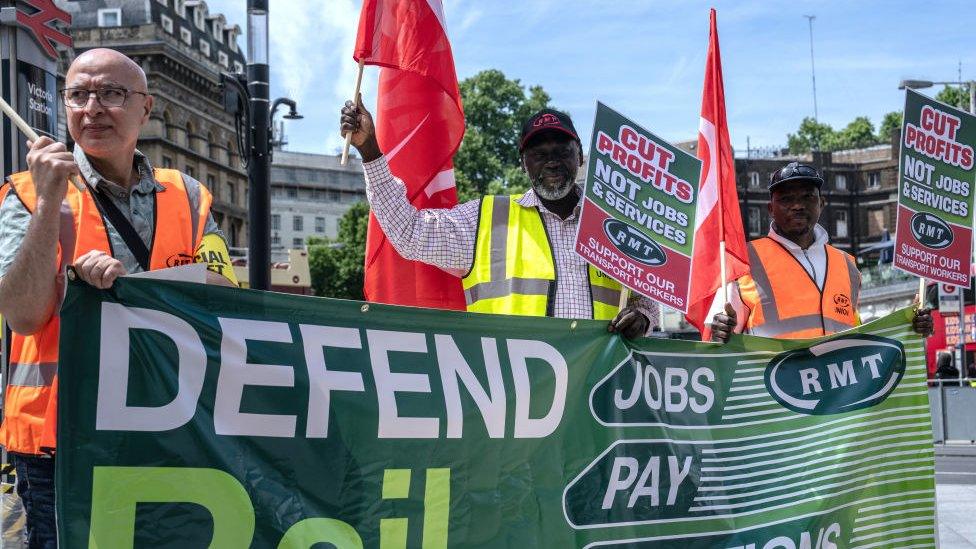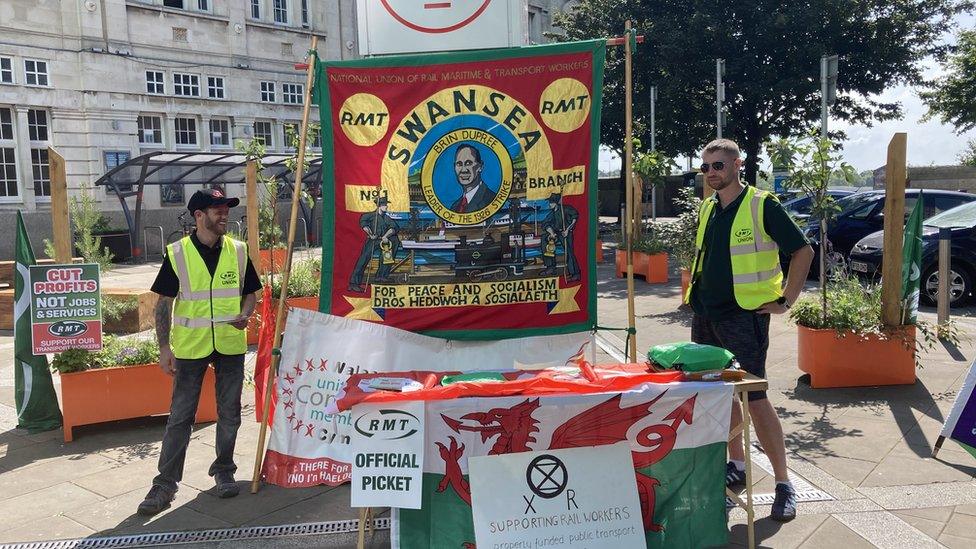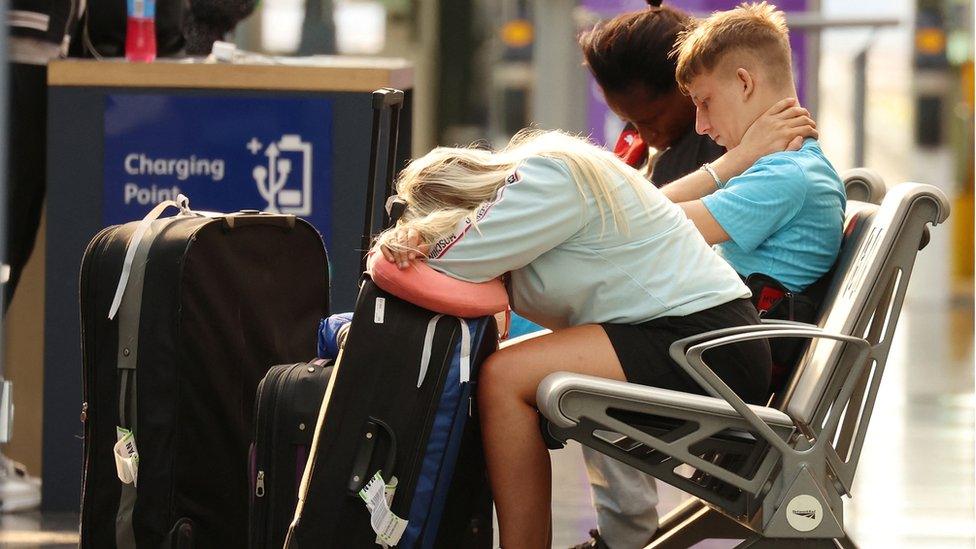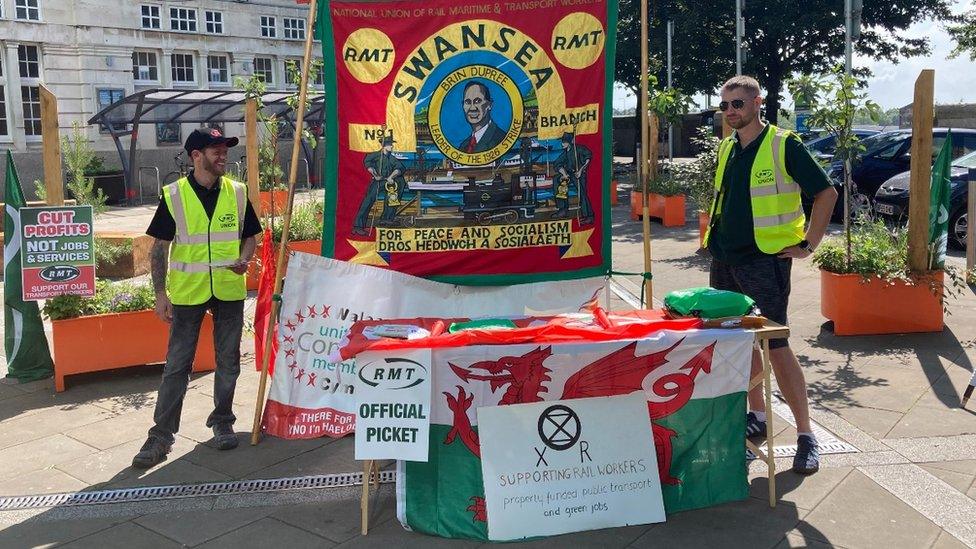Train strikes: Why railway workers say they are going on strike
- Published

RMT union members picket outside Victoria train station
Picket lines were set up at stations across the country as the first day of the biggest rail strike in decades disrupted the travel plans of millions.
Members of the RMT union walked out on Tuesday over job cuts, conditions, pay and pensions. Many plan to do the same on Thursday and Saturday.
Union bosses have blamed the government for cuts and below-inflation wage proposals, while ministers say the railways need reform and large pay increases could send soaring inflation out of control.
London Bridge station supervisor Jane Gwynn said she and her colleagues were striking because their pensions, working conditions and pay were being sacrificed due to the economic effects of the pandemic.
"We worked the same as other people - [the] same as people who work from home and we just carried on. It shouldn't be up to us to pay the price with our conditions in the future," she said.
Speaking from the picket line at Orpington station in south-east London, an RMT rail worker said he was costing his family money by going on strike and losing wages.
The man, who wished to remain anonymous, told us: "We don't want to inconvenience anyone. I apologise sincerely, but if I don't believe and stand up for what the union is for, what's the point in being in the union?"
He added: "Enough is enough now. Everyone in every position needs to stand up to this government for what you believe in and get what's owed to you."
Watch: One striking RMT worker says "Enough is enough... we need to stand up to this government"
Elsewhere, there was a withering response from striking railway workers to Transport Secretary Grant Shapps' claim that the RMT's call for him to come to intervene was "a stunt".
One worker at Euston station, who didn't want to give his name, said: "Grant Shapps would be better served trying to find a resolution to this dispute than criticising rail workers who kept the country moving during Covid."
"He called our members true heroes during the pandemic - now he's attacking them," he added.
Another said rail workers were facing redundancies, which would "threaten not just their livelihoods, but the safety and security of the railway".
Prime Minister Boris Johnson has said the reforms are vital to the railways and passengers - and has urged the public "to get ready to stay the course" of disruption.

Members of the RMT union at the picket line in Swansea
Elsewhere, Robert, an RMT member on strike in Milton Keynes, told BBC 5Live that he worked "longer and harder" throughout the pandemic as an essential worker.
He said being on furlough wasn't an option for workers like him as the railway infrastructure had to be maintained by staff, despite a reduced number of trains operating as people stayed home.
"The railways are not like the roads where if there's a pothole someone will drive round it. If there's a problem on the railway, trains will have to put a speed limit on it or not run it," he added.
Related topics
- Published21 June 2022

- Published21 June 2022

- Published9 May 2024
